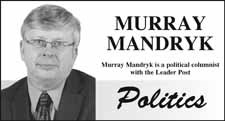You may be surprised to know that the government was selling alcohol in Saskatchewan long before we had the CCF-NDP.
Government here has been peddling booze for nearly a century now - a government entity almost as older than the legislative building itself.
It was 1915 - 18 years before the creation of CCF - when the province`s first premier Walter Scott thought it necessary to close retail bar sales and make the provincial government the sole authority for retail liquor sales.
No doubt, Scott was the first in a long line of Saskatchewan premiers to recognize the benefits of being in the booze business, although his foray into alcohol business did not last long. A year later, three quarters of Saskatchewan voted in favour of prohibition that would last from 1917 until 1924.
It might also be surprising to know we have also had a system of private liquor sales for nearly as long as the CCF-NDP has existed.
It started in 1935, with the Liquor Act that allowed the sale of beer in glasses in hotel bars, clubs and canteens and the "off-sale" of beer in packages. (However, it took until 2002 before off-sales were allowed to also sell spirits.)
It might also surprise you that rural Saskatchewan has always led the way in this province`s liquor sales innovation. In 1965, the law changed so "suitable persons" could become liquor store vendors in rural communities. Today in Saskatchewan, there is some 190 such liquor franchise to go along with 450 off-sale locations, four full private liquor stores and 75 government stores.
But it may surprise you even more to know that government will remain heavily involved in liquor sales - regardless of which option is chosen among the five models now putting forward for the province.
In releasing his discussion paper on the future of alcohol sales, Saskatchewan Liquor and Gaming Authority (SLGA) Minister Don McMorris outlined five options that ranged from increasing the number of public liquor stores, to the status quo to a slightly more aggressive private participation to full-on privatized liquor sales like Alberta.
It sounds like it has the potential for incredibly drastic change, but it really doesn't.
For starters, the Saskatchewan Party government has ruled out more public liquor relating in its most recent throne speech.
That would suggest it is hell-bent on handing over the liquor business to private sector, but the Saskatchewan Party is not quite as eager as some may think.
McMorris made two things very clear in his discussion paper: First, his government has no intention on seeing any less in annual revenue and would like to see much more in booze revenue in the future. Second, his government has absolutely no interest in any changes to the government's lucrative wholesale distribution business or its liquor taxation rates and pricing policies.
For example, the Sask. Party government still intends to apply its existing "mark-up rate" on a bottle of booze - the Ad valorem system in which a percentage is applied to the wholesale price from the supplier that is as much as 167 per cent on spirits and 125 per cent on wine.
This compares with the flat rate of $20 a bottle in private stores in Alberta - the only province in the country that uses a flat rate. This is really why we pay $150 on a bottle Scotch here (its wholesale cost of $40 or $50 may be marked up 167 per cent) that may only cost $90 in Alberta.
But the Sask. Party government - hit by $77-US-a-barrel oil it thought would be $93 US a barrel - has no interest in forgoing this liquor revenue.
So what`s most likely to come out of this discussion paper is what you`ve seen for 100 years - booze with a generous mix of government involvement in Saskatchewan.
Murray Mandryk has been covering provincial politics for over 22 years.




